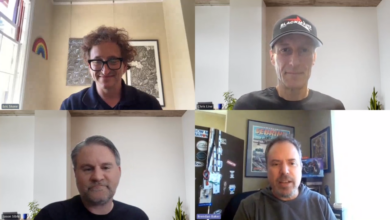Feb. 9, 2009 – California board approves aftermarket exhaust exemption
By Mike Davin
Contributing writer
On Jan. 22, the California Air Resources Board (CARB) unanimously approved an exemption requested by aftermarket manufacturers that will allow them to sell exhaust systems legally, which is good news for parts manufacturers and riders who like to express themselves through their bikes.
Current California law prevents the modification of any pollution-control system on a motor vehicle that is under warranty, which includes the exhausts of motorcycles with catalytic converters and other emission-control components. California’s emissions laws often serve as a model for the EPA and other states.
Under the newly approved regulation, manufacturers can earn an exemption by submitting to a testing procedure similar to what OEMs go through for certification, says Rose Castro, manager of CARB’s Aftermarket Parts Section.
Castro says aftermarket manufacturers would have to show their parts meet the same durability and emissions standards as the components they replace.
“Essentially they’re showing that the added-on part does not harm the emission-control capabilities of the vehicle, and that it will last as long as the original part,” said John Swanton, an air pollution specialist with CARB.
Until now, there was no way to legally sell an aftermarket exhaust even if it met the same emission standards as the original part.
Castro says it takes about a year for rules to be adopted using California’s regulatory process. However, she says a conditional executive order will likely be issued shortly for the manufacturers who are interested in getting an exemption early.
Both John Paliwoda, executive director of the California Motorcycle Dealers Association, and Tom Austin, who spoke on behalf of the Motorcycle Industry Council, supported the regulation in general but expressed concern with a record keeping aspect of the proposal, which would require dealers to record the VIN of a customer’s motorcycle before selling an exempted aftermarket part. Paliwoda and Austin said the requirement places an undue burden on dealers because customers often don’t have their bikes with them when they come to make a purchase and therefore don’t have the VIN available.
However, CARB board members felt that recording the VIN was necessary in case of potential recalls and left that requirement in the approved proposal.
Aftermarket manufacturers would be required to pay $100 to submit an exemption application, but Castro thinks the research and development needed to meet exhaust requirements has already been done.
“I think a lot of these aftermarket exhaust manufacturers did their homework because they told us they’re gearing up for this month’s trade show, so they should be able to announce at that time that they have the products available,” Castro said. “They told us they already went through the testing that’s necessary.”
The parts being exempted are used primarily to reduce emissions, including catalytic converters, oxygen sensors and carbon-embedded air cleaners.
Some older aftermarket parts lacked the technology to control emissions.“There were aftermarket mufflers made that just totally removed the catalyst. And in that situation, it can be 100 times worse emissions or something like that,” said Swanton. By allowing aftermarket exhaust manufacturers to offer something that has a well-functioning catalytic converter, Castro says, it gives vehicle owners the ability to choose a legal part over something that doesn’t have a converter, which is illegal because of anti-tampering laws.
Castro says the exemption would be something special for motorcycles because of the nature of the industry, which of course includes a large number of owners who enjoy customizing their bikes.
In the staff report that proposed the exemptions, CARB cites a 2003 MIC survey that showed 38 percent of all highway motorcycles had modified exhaust systems. Another survey by CARB of 2003-2007 model year highway motorcycles showed 85 percent of newer motorcycles in Southern California have had some type of exhaust modification before the original emission warranty had expired.
In California, Swanton says enforcement of illegal modifications laws happens in several ways. It can occur in the field when police officers pull over a vehicle, or it might be prompted by a noise violation. There is also shop enforcement, both for shops modifying existing vehicles and for those selling new vehicles, where vehicles are inspected on site.
In 2007, the last year for which statistics are available, CARB settled 10 on-road motorcycle cases for a total of $3.5 million and five off-road cases for $285,000.
For a transcript of the Jan. 22 meeting, go to arb.ca.gov/board/meetings.htm.




